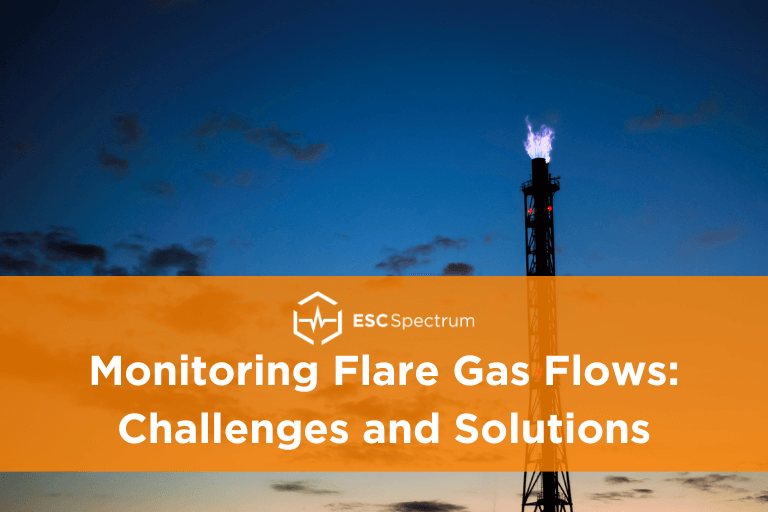Challenges in Measuring Flare Gas Flows
Flare systems are essential in many industries, including oil and gas, chemical processing, petrochemical, refining, and waste management. They safely burn off excess or waste gases, preventing harmful emissions from entering the atmosphere. However, accurately measuring and monitoring these flare gas flows presents several challenges.
Variability in Flow Rates
Flare systems often deal with highly variable flow rates, making it difficult to obtain accurate measurements. This variability can arise from changes in production rates, equipment malfunctions, or emergency shutdowns.
Composition Changes
Flare gas’s composition can change significantly, affecting its density and flow characteristics. This variability requires measurement technologies that can accurately account for different gas properties.
Harsh Conditions
Flare stacks are exposed to extreme temperatures, corrosive environments, and high winds. Instruments used for monitoring must withstand these conditions, losing accuracy or reliability.
Regulatory Compliance
Stringent environmental regulations require continuous monitoring and reporting of flare gas emissions. Failure to comply can result in heavy fines and operational shutdowns.
Technologies for Flare Gas Flow Measurement
Ultrasonic Flow Meters
These meters use sound waves to measure gas flow. They are non-intrusive and can handle a wide range of flow rates and compositions, making them ideal for flare applications.
Thermal Mass Flow Meters
These devices measure the mass flow of gases based on heat transfer principles. They are effective for measuring low flow rates and can provide accurate readings even with changing gas compositions.
Optical Flow Meters
Utilizing laser or infrared technology, these meters can accurately measure gas flow by analyzing changes in light patterns. They are particularly useful in harsh environments where traditional sensors might fail.
Innovative Monitoring Solutions
Flare monitoring systems are increasingly integrating advanced technologies to enhance accuracy and reliability. For example, FLIR infrared cameras are used to detect and monitor flare stack flames. These cameras provide real-time thermal imaging, allowing operators to see the flame even when it is invisible to the naked eye.
Read our blog post, Decoding the World of Flare Gas Monitoring, for a deep dive into the details of flaring, operations, applications, and more.
Additionally, automated control systems can adjust the air or stream flow to optimize combustion, reducing smoke emissions and improving environmental compliance. Integration with software solutions allows for remote monitoring and data logging, ensuring operators can quickly respond to any issues that may arise.
Partners in Flare Monitoring
Accurate flare gas flow measurement and monitoring are critical for operational efficiency, safety, and regulatory compliance. By leveraging advanced technologies and systems, industries can effectively manage flare emissions.
ESC Spectrum’s state-of-the-art StackVision Data Acquisition System enables you to comply with evolving air emissions monitoring regulations. We are industry leaders in flare and fuel monitoring, catering to all different industries.
For a complete resource on emissions monitoring, explore our Comprehensive Emissions Monitoring Guide for Refining and Petrochemical Facilities, covering everything from best practices to regulatory compliance.

Reagan Sokolosky - Marketing Specialist III
Reagan is a Strategic Communications graduate from Oklahoma State University who joined ESC Spectrum in April of 2020. She dove headfirst into the air emissions compliance industry with no prior experience. She has been writing and researching about air emissions for 4 years to educate our customers. Within four years, Reagan advanced to Marketing Specialist III, showcasing expertise in ESC Spectrum’s learning offerings, email marketing, video editing, product and software releases, and company rebranding.
Contact Reagan at rsokolosky@escspectrum.com for questions or comments.


